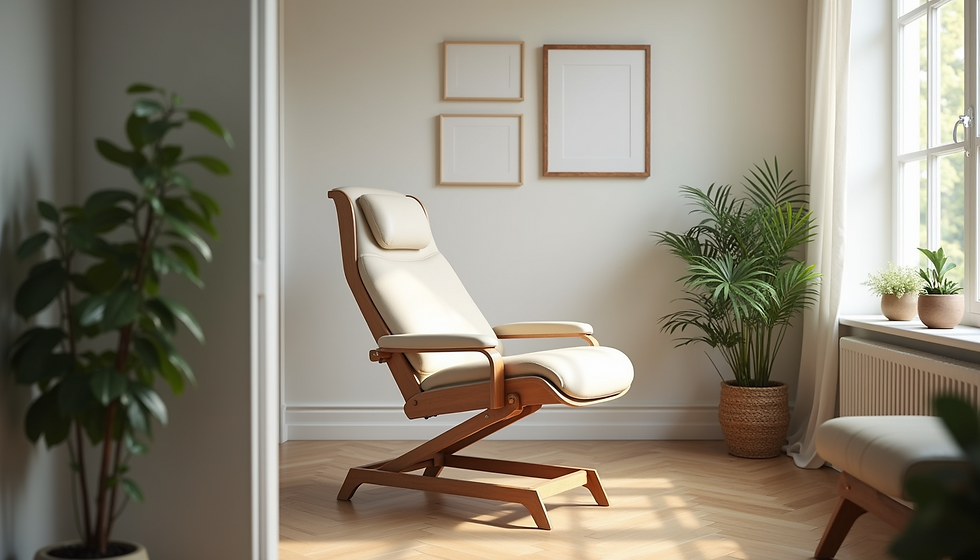3 Things Impacting Your Goals (That Aren’t Training)
- Kat De Camillo

- May 10, 2021
- 4 min read
The gym isn't the only thing that determines your fitness. You can have everything else in balance but, if certain factors are out of alignment with your goals there are repercussions that can keep you from reaching the next level. They impact your ability to perform as well as your ability to regulate your appetite.
So if you find that you are constantly snacking throughout the day or dragging yourself through your gym sessions, take a look at these three factors:
1. Sleep.

We're constantly plugged in, up and running and trying to eek out every minute of the day to be productive and this can lead to getting less sleep than we need. It could be the result of working late, binge watching your shows to decompress or high stress levels keeping your brain on at night, but studies show that losing sleep has negative effects on both your diet and athletic performance.
We all know the importance of sleep but, did you know that there is a correlation between a lack of sleep and a larger waistline? This study compared the neural and behavioral effects that lack of sleep can have on eating behaviors and how it alters food choices. The study showed diminished activity in regions of the brain that regulate appetite and increased the desire for higher-calorie foods. All in all, sleep deprivation can be positively linked to desiring higher-calorie, weight-gain promoting foods.
As for its effect on exercise, this study shows that a lack of sleep can increase your rate of perceived exertion (meaning that you tire more quickly when performing exercise), decreases muscle glycogen (which may result in impaired performance), and even minimal sleep deprivation decreases accuracy dramatically (which may leave you more susceptible to injury).
With all of these negative effects, it's important to get quality sleep to prevent stalls in your fitness and health goals.
Want something to try?
Being exposed to light before bed time can affect your sleep quality. When I realized that I was having a hard time falling asleep at night, I decided to forego unnatural light. Once the sun goes down, my lights stay off. This has done wonders for helping me fall asleep consistently and around the same time. If going completely dark at night seems like an unlikely scenario, try dimming the lights or using candle light.
2. Nutrition.

Calories in versus calories out, is the key to weight-loss, but how your food is comprised can have a big role in how you perform in the gym and how your diet goes throughout the day. Balancing carbs, fats and protein in the appropriate ratios for your body can be a huge player in terms of satiation and hunger.
According to this study high carbohydrate/low fat meals spike insulin and increase the rate at which glucose rises and then falls meaning your appetite and hunger may return sooner.
Additionally, it has been shown that moderate to higher protein intake helps with diet adherence and satisfaction in competitive athletes in a cutting phase. This study shows that, along with helping individuals retain muscle mass while leaning out, occasional high protein meals helped the athletes stick to the plan and be satisfied with it.
Want something to try?
If you find that you're struggling to keep yourself from snacking between meals or you're burning out in the gym. Track your food for a week and see where your protein, carbohydrate and fat ratios are. It's possible you're through the roof on carbohydrates, leaving you peckish during the day or low on protein, hindering your recovery between gym sessions. If you are looking at your macros and have no idea where to start, try this calculator to get some baseline numbers to play with.
3. Hydration.

Water plays a pivotal role in our health. In regards to our abilities in the gym, this study shows that as little as a 2% deficit in water can impede our performance, not to mention, dehydration can put us at risk for heat related illnesses (such as heat stroke) and electrolyte imbalances.
While there is some suggestion that we may confuse thirst for hunger (thereby over-consuming calories when we're actually just thirsty), being properly hydrated can also reduce the amount of calories we take in. Opting for non-caloric beverages like water can help satiate us between and during meals, leaving less room for tons of food. The average recommendation for water intake is about 3.7 liters for men and 2.7 liters for women.
Want something to try?
Sometimes the struggle to consuming more water is the lack of flavor. Slices of fruit or veggies (like cucumber) can add a little flavor if that's what you need to consume more. I've had clients who have mentioned grogginess and lethargy prior to gym sessions. We've implemented the strategy of consuming at least 8 ounce of water prior to training sessions and it has helped immensely.
There are plenty of other factors that effect your goals other than the hours you put in at the gym. Try tackling these with better habits one at a time and Your body will thank you!






Comments